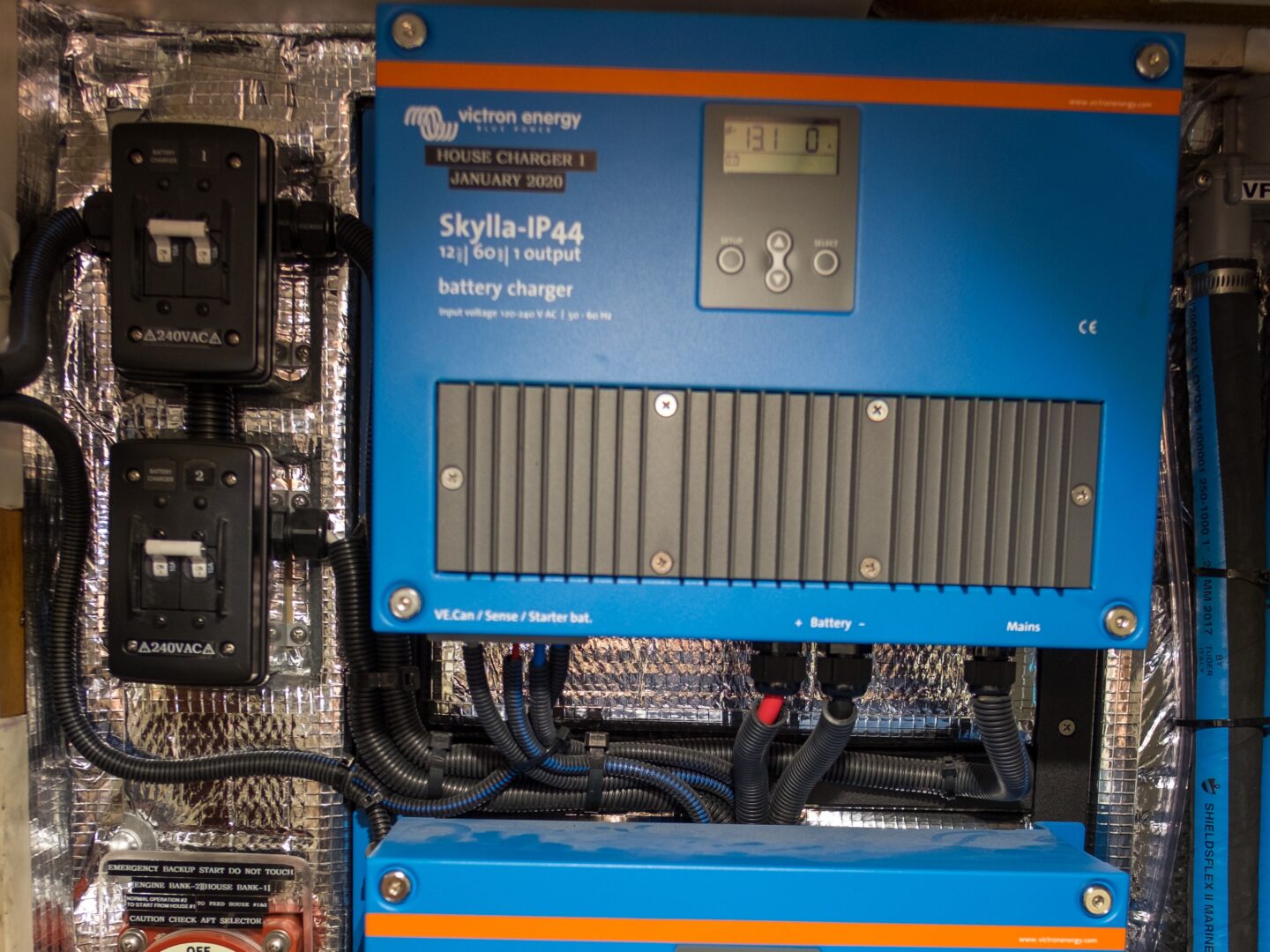
Some conditions can occur in any electrical system that may lead to hazardous situations.
When you are out on the water, an electrical failure or complication can be annoying or even severely dangerous. Some conditions can occur in any electrical system that may lead to hazardous situations that could ultimately damage your boat or safety risks to you and your passengers. If you want to ensure a good and safe time on the water, be sure you are aware of these factors before they become serious issues. Here are some dangerous conditions for your boat’s electrical system.
Incorrectly Sized Wires
When designing and implementing wiring schematics for your boat’s electrical system, the wires’ size and insulation are some of the more critical factors to consider. It is essential to use wires with at least 105 degrees celsius insulation. Heat is created inside the wire by resistance to the electrical current, and the wire’s temperature is directly correlated to the resistance. You must use wires rated for higher temperatures, which will reduce the risk for corrosion at wire terminals and extend the life of your electrical system.
Corrosion
Since boats and yachts spend all their time in the water, corrosion can quickly become your worst enemy. Salt is a prominent issue for vessels and their electrical components. But even if you stay in freshwater, the constant humidity and other conditions can take their toll on the wiring of your boat. It is essential that you check your boat’s electrical system for signs of damage before you take it out to ensure you will have power when you need it.
Not Using the Shore Power Cord Locking Ring
The shore power cord locking ring creates a connection between the power cord plug and the hull receptacle. When this connection is not secure, any movement can cause the plug to shift around in the receptacle. Excessive movement can compromise the electrical connection, which can result in dangerous overheating. The locking ring keeps the plug from falling out and keeps the two elements together so that your boat shifting in the water does not move the connection. The constant working of the connection combined with the boat’s motion can loosen the connection, increasing corrosion and weakening spring contact tension.
No “Green Wire”
To avoid stray AC current from entering the DC ground system, you should ensure there is a good connection between DC negative and AC safety ground. The green wire in your boat’s electrical system is the safety ground wire that connects the DC negative ground block to the AC safety ground bus. This wire functions to provide the lowest-resistance path to the ground for any stray current that finds its way onto the ground system.
Marine Electric Systems, LLC is a Leader In the Maritime Industry
We here at Marine Electric Systems have over 30 years of industry experience. You can trust our team for reliable service and expert craftsmanship in the Maryland, Baltimore, Annapolis, and Baltimore city areas! We’re highly certified and adhere to all ABYC and NMEA regulations. We specialize in top-notch electrical solutions for recreational, commercial, and government boating clients. Anything from electrical refits, to navigation systems, or boating maintenance. To stay up to date on our services, follow us on Facebook, LinkedIn, Pinterest, Instagram, and YouTube. You can also contact us at 410-263-0807.
